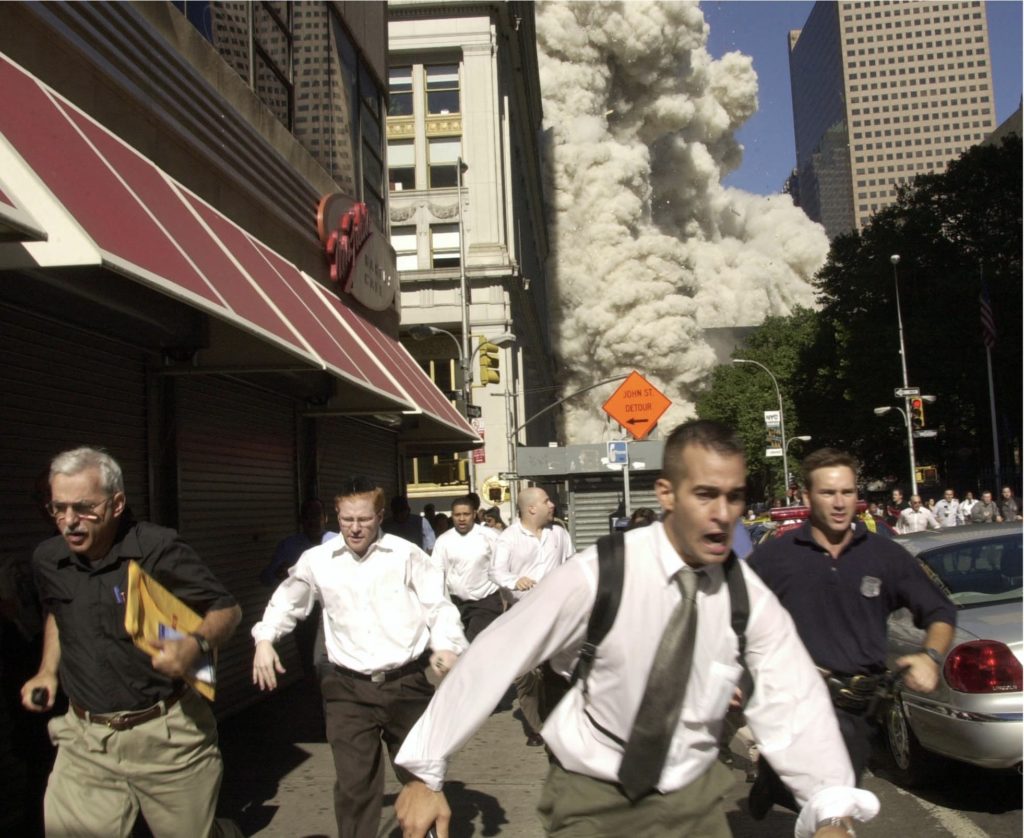
When astronaut James A. Lovell looked down from the Apollo 13 spacecraft on the tiny sphere that we call “earth”, he stated:
[This view] gives you a different perspective of the Earth when you see it as three-dimensional between the sun and the moon, and you begin to realize how small and how significant the body is,” he said. “When I put my thumb up to the window I could completely hide it, and then I realized that behind my thumb that I’m hiding this Earth, and there are about 6 billion people that are all striving to live there.”
Lovell went on to muse about the amount of conflict among the peoples that populate the earth, and he wondered why they could not live in harmony on such a beautiful planet. Has our species evolved to be tribal and forever embroiled in conflict, or is it possible for a spirit of pacifism to prevail?
In December 1932, Albert and Elsa left Germany for his sessions at Caltech and the Institute for Advanced Study. Einstein’s arrival in California was met with widespread enthusiasm by academics and by those who saw him as a pacifist and a prince of peace. On his previous visits he had been quite outspoken about his opposition to conscription, the military, and war in general. However, in the months that followed, political events unfolded across Europe that would change forever Einstein’s views on pacifism.
On January, 30, 1933, Adolf Hitler and the Nazi Party came into power in Germany. Within the next few months, the Nazi intention to rid the Third Reich of Jews became vividly apparent. Jewish scholars were fired from their faculty positions, swastikas were painted on the doors of Jewish homes and storm troopers ransacked their premises. Einstein’s home in Caputh, Germany had been raided and he realized that his life would be in jeopardy if he returned to Germany. When told that a bounty of $5000 had been placed on his head, he remarked with typical self-deprecation, “I didn’t know it was worth that much.” Mass book-burning bonfires across Germany were a final indication that the barbarians were not at the gates, but within them.
On March 28, 1933, when Albert and Elsa returned to Europe from their trip to the US, Albert went to the German consulate in Brussels where he returned his passport and renounced his citizenship. He then sent a letter, resigning his position from the Prussian Academy. In his persecution of the Jews, Hitler drove out of Germany many of the brilliant scientists who, a dozen years later, would help to bring about Hitler’s destruction. As Einstein watched what he called, “the utter failure of the so-called intellectual aristocracy,” he renounced his previous commitment to pacifism and conceded, “Under today’s conditions, if I were a Belgian, I would not refuse military service, but gladly take it upon me in the knowledge of serving European civilization.”
Prior to the rise of Nazi Germany, Einstein could be described as a pure pacifist, abjuring all war. However, he subsequently realized that the pacifists who had urged Germany’s neighbors not to rearm had merely emboldened the Nazis. This brought him to the realization that pacifism is defenseless in the face of an aggressive military. Walter Issacson, in his biography, Einstein: His Life and Universe, writes, “Pacifists liked to think that Einstein’s break with their philosophy in the 1930’s was an aberration caused by the unique threat posed by the Nazis, and some biographers likewise treat it as an anomaly. But this minimizes the shift in Einstein’s thinking. He was never again a pure pacifist.” On August 2, 1939, Einstein typed a letter to Roosevelt informing him that the development of a uranium bomb by Germany would pose a significant threat to the security of the United States, so the US should begin to develop a team of physicists to work on the development of such a bomb and to establish a supply of uranium ore in the event that an atomic bomb is needed.
There has been significant controversy over whether Bertrand Russell had advocated a preemptive nuclear strike against the Soviet Union during his 1948 speech at Westminster School. In an article in The Economist Magazine, July 19, 2001, Nickolas Griffin, Director of the Bertrand Russell Research Centre at McMaster University in Hamilton, Ontario, argues that Russell acknowledged that a nuclear war with Russia would be devastating, so it would be important to contain them before they obtained a nuclear weapon. Whether or not he was recommending a preemptive strike was not clear, but his original pacifist position in the face of a bellicose adversary, had changed through a realization that participating in conflict for self-defense is necessary.
After the collapse of the Soviet Union, it appeared to many that, at long last, world peace might be within our grasp. When the twin towers in New York City, along with about 3000 innocent people, were decimated on September 11, 2001, it was clear that tribal hatred was still pervasive in our species. And now, as we acknowledge the 23rd anniversary of that horrendous event, we look across our globe and see a looming escalation of wars in the Middle East and Ukraine.
Was Johnathan Swift prescient in his description of our species in 1725, when he wrote, “I cannot but conclude that the bulk of your Natives, to be the most pernicious race of little odious vermin that Nature ever suffered to crawl upon the surface of the Earth.” ?
